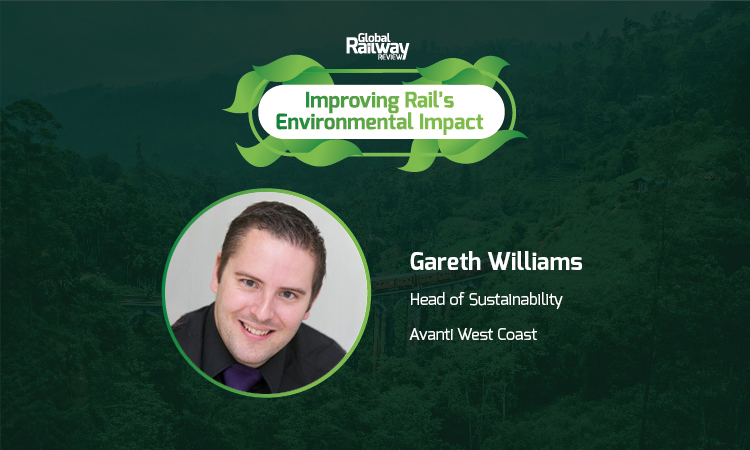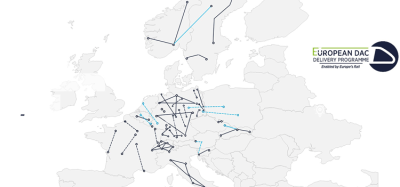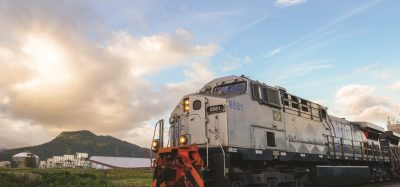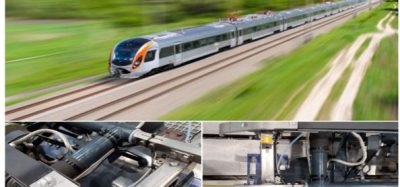Avanti West Coast: Demonstrating commitment to sustainability and the environment
Posted: 17 June 2020 | Gareth Williams | No comments yet
As part of Global Railway Review’s Improving Rail’s Environmental Impact series, the Head of Sustainability at Avanti West Coast, Gareth Williams, discusses the operator’s efforts to improve its energy consumption and carbon footprint by working with local communities and passengers.


How important are local communities in rail’s ambition to become more sustainable?
To become a fully sustainable railway, we need engagement from the local community and our customers. As an industry, and at Avanti West Coast, we can connect people to work opportunities and leisure activities, which is why it is important that we know what our customers and communities want. We feel the railway should reflect the communities it serves, which is why we are in the process of setting up regional customer panels and regional accessibility panels to engage with passengers at a local level and gain an insight into what we can do.
How does rail’s workforce contribute to delivering sustainability in the sector?
…everyone has a role to play in contributing to rail’s sustainability.”
Every person who works on the railway is helping the UK to be more sustainable by connecting people and reducing the country’s carbon footprint. Whether you are a driver balancing the right time of arrival by using energy-efficient driving techniques; a member of a station team who is monitoring their energy consumption; or part of the Projects and Estates Teams who are implementing improvements at stations for accessibility and energy efficiency – everyone has a role to play in contributing to rail’s sustainability. It’s not just the frontline staff; the Communications and HR Teams are vital in embedding responsible behaviours and a sustainability culture, ensuring that workforces are prepared to deliver on commitments and face new challenges.
What environmentally friendly initiatives are being deployed at Avanti West Coast train stations?
We are working to convert lighting across all our stations to energy-saving LEDs, connected to a building management system for improved control, subsequently minimising energy consumption.
We’re also exploring new ways to segregate waste in order to increase recycling. To make journeys more seamless, we’re planning to invest in electric charging points in our car parks and cycling facilities, so that passengers can travel to and from our stations using cleaner transport methods.
What sustainable initiatives/programmes/projects have you been a part of, or that you have admired elsewhere in the industry, that have made a positive impact on rail’s progress so far to improve its environmental impact?
I’m looking forward to seeing the introduction of the new bi-mode trains in 2022, which will replace our Voyager fleet, substantially reducing our carbon footprint and air pollutants.”
In the early part of my career, I worked with Transport for London (TfL) on the first hybrid and hydrogen buses. These were great projects that showed me that, with ambition and senior leadership support, you can make change happen. It also provided assurance that technology did exist that can work to dramatically reduce carbon emissions.
Within rail, I was involved with the Accrington EcoStation and the European Sustainable Stations project that showcased different techniques across different countries to minimise a station’s environmental impact. I was proud to lead the Northern Rail Environment team when we became the first company in the world to be certified in the latest version of the International Standard for Environmental Management – ISO 14001 – back in 2015.
At Avanti West Coast, I’m looking forward to seeing the introduction of the new bi-mode trains in 2022, which will replace our Voyager fleet, substantially reducing our carbon footprint and air pollutants.
What do passengers want to see from a sustainable railway?
Being a responsible business is becoming increasingly important to our customers. Not only do our customers want our services to be on time and comfortable, but they also want us to demonstrate our commitment to sustainability and the environment. We’re asked what we’re doing with recycling, diverting waste from landfill, provision of vegan options and our ambitions for customers with hidden and physical disabilities.
We have numerous targets to reduce our environmental impact, encompassing carbon, energy, water and waste.”
We have numerous targets to reduce our environmental impact, encompassing carbon, energy, water and waste. We are committed to increasing and improving accessibility and have created both network-wide and regional pan-disability user panels to recommend projects and improvements.
In addition, society is raising aspirations around decarbonisation, and I feel that the rail industry can be at the forefront of the discussion for low carbon transport.
Do you think there should be more effort from stakeholders towards delivering large-scale rail projects (such as modernising stations) in a more sustainable way, and why?
…the speed of change over the last decade excites me about what can be achieved in the next 10 years, by 2030.”
We recognise that there’s always more to be done to be more sustainable, but the speed of change over the last decade excites me about what can be achieved in the next 10 years, by 2030.
Through the continued dedication from environmental professionals across train operating companies, Network Rail, rolling stock companies, the Rail Safety and Standards Board (RSSB) and the vast rail supply chain, there has been significant change – most stations have LED lighting, solar panels are being included from the beginning of projects. Some great examples are: Blackfriars, where Network Rail installed the largest solar panel array on a bridge in the world; and the introduction of a combined heat and power system in the Birmingham New Street redevelopment.
At Avanti West Coast, we’re working in partnership with stakeholders to support station developments and will be investing in solar energy and rainwater harvesting.
What main challenges do you think must be overcome in order to improve rail’s environmental impact in the years to come?
As the environmental agenda gains increasing priority, there is a need to build on expertise across the rail industry.”
As the environmental agenda gains increasing priority, there is a need to build on expertise across the rail industry. Environment teams within train operating companies tend to be small and highly skilled, but much more could be achieved if the environmental agenda was given the same focus and resource as other vital and fundamental agendas of the railway.
Why should sustainability be at the heart of the rail industry’s decision-making?
True sustainability is operating a business or an industry with the long-term in mind. The railway can only continue to operate if the environment is looked after – this includes managing the impacts of climate change, from flooding to extreme temperatures.
We need to act now to promote our current social and environmental credentials…”
Our customers are becoming increasingly socially and environmentally aware and if we, as an industry, do not acknowledge the greater responsibility we have to be as sustainable as we can possibly be, our customers will choose alternative transport modes. We need to act now to promote our current social and environmental credentials to our customers and the next generation, whilst challenging them to support our efforts to make the rail industry sustainable for the long-term.
Gareth Williams has an MSc in Environmental Engineering, is a full member of the Institute of Environmental Management and Assessment (IEMA) and is a Chartered Environmentalist. Gareth has worked in the transport industry for over 15 years, dedicating his career to environmental improvements. As the Head of Sustainability for Avanti West Coast, Gareth is leading the company’s strategy on environment, community, charity and accessibility.
Related topics
Electric/Hybrid Rolling Stock, Passenger Experience/Satisfaction, Station Developments, Sustainability/Decarbonisation, Technology & Software
Related organisations
Avanti West Coast, Network Rail, Rail Safety and Standards Board (RSSB), Transport for London (TfL)








